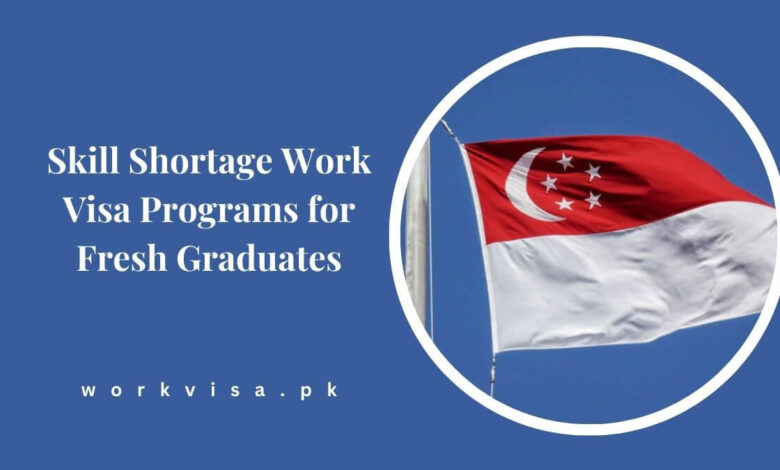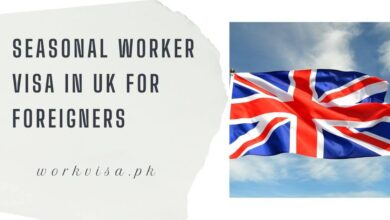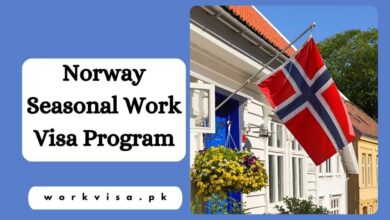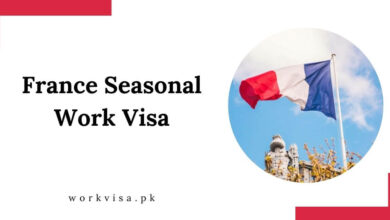Skill Shortage Work Visa Programs for Fresh Graduates

The global job market is flourishing, generating thrilling opportunities for recent graduates. Many countries are actively recruiting exceptional individuals to address critical skill shortages in 2025. This trend indicates that accelerated work visa programs are providing opportunities for recent graduates, regardless of their level of work experience.
Think again if you have recently obtained your degree and are concerned about being disregarded. Numerous nations are simplifying their skill-shortage visa pathways, which allows you to immediately assume high-demand positions.
Check Also: Cleaner Jobs in Singapore with Work Visa Sponsorship
Why 2025 is the Perfect Time to Act
Governments worldwide are compelled to address workforce deficits in critical sectors, including finance, healthcare, technology, engineering, and artificial intelligence. In order to attract recent graduates with specialised knowledge, they are revising their visa policies. With the appropriate approach, it is possible to convert your degree into a passport that grants you access to a thrilling international career.
Eight Skill Shortage Work Visa Programs for Fresh Graduates
In 2025, there are eight work visa programs that are available to recent graduates:
1. Australia: A Land of Opportunity
- Skills in Demand (SID) Visa (Subclass 482): Employer sponsorship may be available without prior experience if your degree is in accordance with Australia’s Core Skills Occupation List (CSOL).
- Temporary Graduate Visa (Subclass 485): This visa enables you to remain in the country and acquire local work experience following your graduation, thereby facilitating the process of obtaining permanent residency.
2. Canada: A Welcoming Destination
- Express Entry: Your education is a critical factor in the classification system, which aids in the acquisition of residency.
- Provincial Nominee Programs (PNPs): Specific provinces provide direct pathways for recent graduates in particular disciplines.
- Canadian Experience Class (CEC): This expedites the process of obtaining a work permit and permanent residency for individuals who have completed their education in Canada.
3. Germany: Europe’s Tech & Engineering Hub
- Germany’s Skilled Immigration Act prioritises the recruitment of recent STEM graduates, frequently without any prerequisite work experience.
- Job Seeker Visa: Upon arrival in Germany, secure employment in a high-demand industry, and transition to a work visa.
- Chancenkarte (Opportunity Card): This points-based system enables experienced professionals and recent graduates to relocate to Germany and pursue employment without a pre-existing job offer.
4. Austria: Red-White-Red Card
Education and skills are prioritised in occupations that are in limited supply under this points-based system. There is a high likelihood of qualifying for fresh graduates in the fields of science, IT, and healthcare.
5. New Zealand: Post-Study Work Visa
This visa allows you to gain experience in a skill-shortage sector and remain for up to three years.
6. United Kingdom: Graduate Route Visa
This visa allows individuals to work in the United Kingdom for a period of two years (or three years for PhD graduates) without the necessity of a job offer.
7. Ireland: Third Level Graduate Programme
This program enables international graduates to remain in Ireland for a maximum of two years in order to secure employment.
8. Singapore: A Rising Global Hub
- Employment Pass (EP): As a recent graduate, you may be eligible for work visas if your qualifications align with Singapore’s high-demand sectors.
Benefits of Skill Shortage Work Visa Programs for Fresh Graduates:
- Easier Work Visa Approval: Fresh graduates have a greater likelihood of obtaining a visa because these programs are designed to target in-demand professions, which means they encounter less competition.
- Direct Entry into the Job Market: Graduates are able to commence employment immediately, without the need to wait for extensive work experience, which simplifies the process of establishing their careers.
- Permanent Residency Pathway: Numerous skill shortage visa programs offer pathways to permanent residency, enabling graduates to establish a permanent residence in the host country.
- Opportunities in High-Paying Sectors: These programs concentrate on industries such as IT, healthcare, engineering, and specialised trades, where salaries are both competitive and consistent.
- Benefits of Employer Sponsorship: A significant number of employers provide visa sponsorship, which includes reimbursement for expenses such as work permits, relocation costs, and settlement assistance.
- Rapid Application Processing: As a result of the government’s emphasis on skill shortages, visa processing is expedited, enabling graduates to enter the workforce more promptly.
- International Work Experience: New graduates acquire valuable global experience, which enhances their resumes and prospective job prospects on a global scale.
- Access to Training and Upskilling: Numerous skill deficiency programs offer certifications, professional development courses, and on-the-job training.
- Work-Life Balance & Labour Protections: Graduates are afforded the opportunity to benefit from robust labour laws, which guarantee equitable wages, work hours, and employment rights.
- Networking and Career Development: Graduates have the opportunity to establish industry connections by working in industries that are experiencing a shortage of skills, which can lead to career advancement opportunities.
- Opportunity to Relocate with Family: Certain work visa programs permit applicants to bring their spouses and children, which makes the relocation process more accommodating for families.
- Exposure to Multicultural Work Environments: Graduates can enhance their communication, adaptability, and cultural intelligence by working in diverse contexts abroad.
- Improved Financial Stability: Fresh graduates can establish financial security, repay student loans, and save money by securing stable employment and high salaries.
- Possibility of Long-Term Residency or Citizenship: Numerous nations provide permanent residency or citizenship opportunities following a few years of skilled employment.
- Enhanced Quality of Life: In developed nations, graduates who work abroad frequently experience improved healthcare, education, infrastructure, and social security.
How to Secure Your Spot in These Programs
- Identify Your Target Country and Visa Program: Conduct research on skill shortage lists to ensure that your degree is in alignment with prospective locations.
- Improve Your Application: Enhance your LinkedIn profile, take online courses, and obtain certifications to distinguish yourself.
- Locate an Employer Sponsor: Utilise LinkedIn, networking events, and job portals to establish connections with international recruiters.
- Develop an Effective Curriculum Vitae and Cover Letter: Optimise your resume to meet international standards, as numerous countries implement Applicant Tracking Systems (ATS).
- Follow the visa application process and prepare for your global voyage after securing a job offer. Apply for a visa.
Conclusions:
The world requires your abilities in 2025, as fresh graduates. Do not allow your lack of experience to impede your progress; these global visa programs are specifically engineered to facilitate your success. Whether you aspire to work in Germany’s cutting-edge AI industry, become an engineer in Australia, or enter the finance sector in Canada, there is a pathway that awaits you.
It is unnecessary to postpone the pursuit of your ideal occupation. Seize the opportunity to register now and transform into the global professional you were intended to be!
Frequently Asked Questions:
-
What is a skill shortage visa?
The TSS visa is a temporary one that is valid for either one or four years, depending on your nominated occupation, the visa stream, and your circumstances. The TSS visa enables employers to address labour shortages by bringing in genuinely skilled workers where they cannot source appropriately skilled Australians.
-
Is it simple to get a work visa in Singapore?
The processing time for a Singapore work visa can vary based on the type of visa and the completeness of the application. Typically, an Employment Pass or S Pass application takes around 3 to 8 weeks to process. Work permits for foreign workers usually take about 1–7 working days.
-
Can a fresh graduate foreigner work in Singapore?
To start your career in Singapore, you must have a valid pass (commonly known as a work visa) and you will need to secure a job before arriving.




